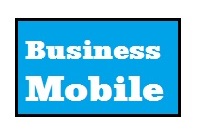 A new mobile internet attitudes report shows mobile internet adoption is on the rise an the UK users are more enthusiastic in their use of the mobile internet than US users.
A new mobile internet attitudes report shows mobile internet adoption is on the rise an the UK users are more enthusiastic in their use of the mobile internet than US users.
The second annual 2011 Mobile Internet Attitudes Report from Antenna Software conducted by YouGov measured the attitudes, preferences and behaviours of adult consumers in the United States and United Kingdom. The survey found that we’re all using the mobile internet much more frequently than a year ago with nearly half of respondents said they would use the mobile Internet each day to stay in touch with friends through instant messaging (21% in the UK and 22% in the US) and social networking (27% in both countries).
British Mobile Internet Users Overtake US Trailblazers
The report found British consumers are more active on the mobile Internet than their transatlantic counterparts. One in three British (34%) and American (33%) consumers are now accessing the Internet using their mobile phone at least once a week, up from 27 and 28% respectively in 2010.
“The mobile Internet has become an important part of daily life for consumers on both sides of the Atlantic,” said Jim Hemmer, President and CEO of Antenna Software. “The desire for convenience and advancements in technology mean more people than ever before can enjoy good mobile Internet experiences regardless of their handset. However, as results of the 2011 Mobile Internet Attitudes Report indicate, there’s still much improvement to be made by operators and enterprises.”
Consumers Demand Better Mobile Internet Experience
Nearly half of US consumers (44%) with mobile Internet access are more likely to use it if the experience offered was similar to using the Internet on their personal computer. With comparable speed, functionality and appearance of websites, the 2011 Mobile Internet Attitudes Report concludes that there is significant opportunity for operators and enterprises to improve the mobile experience on the wide range of handset models used by the public.
According to the 2011 Mobile Internet Attitudes Report, 27% of American and 27% of British consumers are discouraged from using the mobile Internet by websites that don’t display properly on their mobile screens. A further 28% of US and 32% of British consumers cite difficulty in navigating websites on a mobile device as a reason for not accessing the mobile Internet.
“Operators and enterprises must do more to ensure a compelling and rewarding Internet and application experience is had by consumers on all mobile devices – not just smartphones,” adds Hemmer. “Today’s consumer expects a rich, high-quality Internet experience whether surfing on their PC or on their mobile device. Operators and enterprises must ensure their mobile Internet websites and applications can be rendered optimally across the broadest range of handsets – or risk lost revenue opportunities and impaired customer satisfaction and brand loyalty.”
Despite the promotion of flat-rate data packages, cost also remains a barrier to greater mobile Internet usage. The Mobile Internet Attitudes Report found 33% of American and 39% of British consumers still believe that using their mobile phone to access the Internet is too expensive. “While operators have made great strides in promoting flat-rate data, there is a lingering perception in both markets that accessing the Internet through a mobile phone is expensive,” adds Hemmer. “In many cases, unlimited mobile data packages can be substantially cheaper than monthly fixed line broadband costs demonstrating we still have a way to go in educating consumers.”
While mobile Internet usage is steadily on the rise, driven by the demand and popularity of social media and networking tools, many feature-phone users cite poor user experience as a barrier to further adoption. Of the consumers polled, almost half of Americans (44%) failed to use the mobile Internet, despite having access to it on their mobile phone.
[ad name=”Google Text half banner advert “]